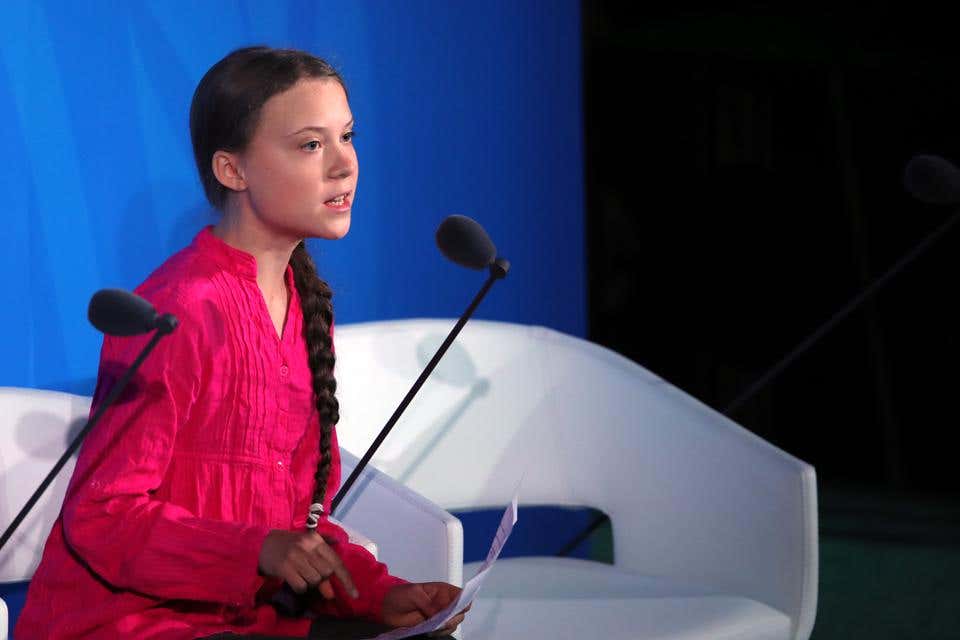80-Year-Old Physicist Credits 17-Year-Old Activist With Shifting Intergenerational Accountability
“Greta Thunberg startled many of us with a fresh message. ‘How dare you,’ she said. ‘How dare you use up our common atmosphere,’”

[Aug. 4, 2020: Forbes]
The climate-change conversation focused on responsibility to future generations until Greta Thunberg refocused it on present generations, said a renowned theoretical physicist. And that has implications for our coronavirus response.
Princeton University Emeritus Professor Robert Socolow has focused his career on the interaction between humans and their natural environment.
“Greta Thunberg startled many of us with a fresh message. ‘How dare you,’ she said. ‘How dare you use up our common atmosphere,’” Socolow said, referencing Thunberg’s message last year to the United Nations climate summit in New York (video below).
“Her ‘you’ are the older people alive today,” Socolow added, “and she is speaking on behalf of the younger people. She is reformulating the climate-change conversation. Instead of future generations, she was making us consider consider current generations: I should not take that plane trip for the benefit of my own grandchildren.”
COVID-19 has similar age implications, Socolow said in a Princeton webinar, although most fatalities occur among the elderly.
Like these kind of stories? Get The Brighter Side of News' newsletter.
Early in the pandemic, health experts urged young people to take precautions not only to protect themselves from coronavirus, but to protect older adults they may encounter and infect.
Comparisons have been drawn between fatalities from coronavirus and fatalities from war, which kills mostly young people. Socolow said he finds it “astonishing” that those comparisons relate the numbers one-to-one, instead of accounting for years of life lost, a statistic commonly used in public health that puts a greater emphasis on deaths of young people. Instead, comparisons have relied on medical ethics, which consider all lives equal.
By emphasizing effects on the living, the coronavirus pandemic will probably make it more difficult to consider climate change’s impacts on future generations, Socolow said, adding importance to Thunberg’s rhetorical shift.
“Regarding the long time horizon of climate change, will it be easier or harder to get the world to pay attention to those not yet born?” Socolow asked. “I think more difficult. We've had a bout of attention to those alive, and it will shadow arguments about the future, the deep future, for some time. But we can focus on the future for a different and probably more compelling reason: attending to climate change is about our children and grandchildren.”
The youngest panelist at the webinar—hosted by Princeton’s Andlinger Center for Energy and the Environment—was 35-year-old engineering professor Jesse D. Jenkins.
“As one of the newer cohort of researchers tackling the climate challenge, the impacts feel for me far less distant and intergenerational than it may for the generation currently occupying leadership positions in government, industry, and other sectors,” Jenkins said.
“The timeline for climate change impacts and our remaining time to mitigate the worst effects might feel far off, on the one hand, yet as parents are fond of saying, the days feel long, but the years feel short. And for me at least, the time is short to act to prevent the worst impacts of climate change not just for future generations but for my own and for my son's.”... Read More
Joseph Shavit
Head Science News Writer | Communicating Innovation & Discovery
Based in Los Angeles, Joseph Shavit is an accomplished science journalist, head science news writer and co-founder at The Brighter Side of News, where he translates cutting-edge discoveries into compelling stories for a broad audience. With a strong background spanning science, business, product management, media leadership, and entrepreneurship, Joseph brings a unique perspective to science communication. His expertise allows him to uncover the intersection of technological advancements and market potential, shedding light on how groundbreaking research evolves into transformative products and industries.



